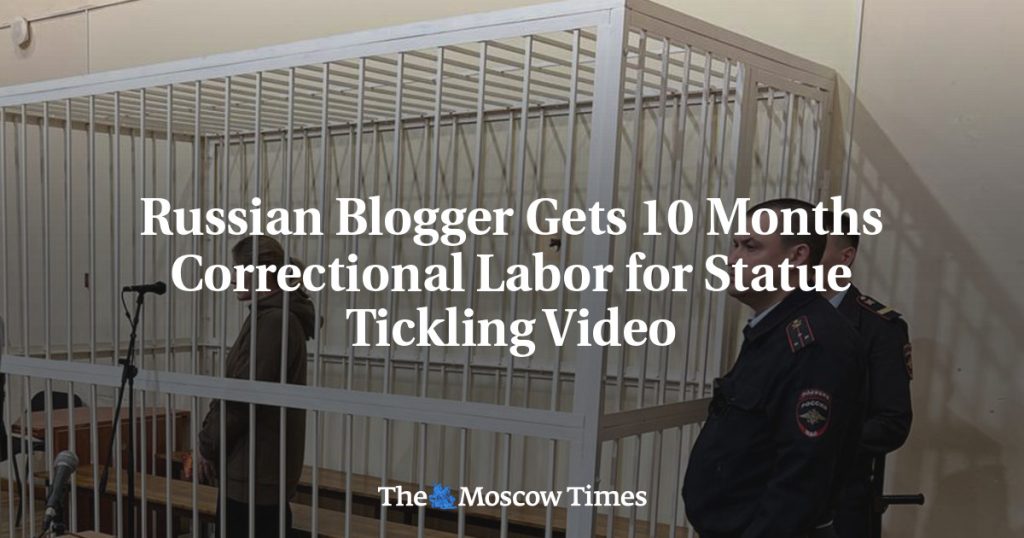Russian blogger Alyona Agafonova has been sentenced to 10 months of correctional labor for “rehabilitating Nazism” in an Instagram video where she pretended to tickle a World War II monument. The incident took place in Volgograd, where Agafonova recorded herself wiggling her finger in front of the Motherland Calls statue’s breasts. The pro-Kremlin bloggers drew attention to the video, which resulted in Agafonova’s arrest in February. The Volgograd Regional Court found her guilty of the offense and handed down the sentence on Friday.
The court sentenced Agafonova to 10 months of correctional labor, ordered 10% of her monthly income to be garnished for the state budget, and banned her from posting anything publicly online for two years. The maximum punishment for rehabilitating Nazism is five years in prison. Agafonova was released from police custody pending the sentence’s entry into force or any potential appeal. The case has sparked controversy and raised concerns among civil rights experts over the vagueness of the law criminalizing propaganda or the rehabilitation of Nazism, which was signed by President Vladimir Putin in May 2014.
The incident involving Agafonova has brought to light the sensitive issue of how Russia deals with the legacy of World War II and the portrayal of historic events. The Motherland Calls statue in Volgograd is a symbol of the Soviet victory over Nazi Germany, making the video particularly offensive to many Russians. The court’s decision reflects the government’s strict stance on the issue of rehabilitating Nazism and the enforcement of laws aimed at preserving historical memory and preventing the glorification of Nazi ideology.
Critics argue that the law criminalizing the rehabilitation of Nazism is too broad and leaves room for interpretation, potentially infringing on freedom of expression and artistic freedom. The case of Agafonova highlights the tension between upholding historical truth and protecting individual rights in Russia’s legal system. While the government seeks to combat extremism and hate speech, there are concerns about the use of vague laws to restrict dissent and control public discourse.
The sentencing of Agafonova has sparked debates about the limits of free speech and the consequences of crossing those boundaries. Some view the punishment as excessive and a violation of the blogger’s rights, while others support the court’s decision as necessary to preserve the memory of the war and prevent the dissemination of harmful ideologies. The case serves as a reminder of the complexities surrounding issues of historical memory, freedom of expression, and censorship in modern Russia, where the government’s efforts to maintain social order and national unity sometimes clash with individual liberties and creative expression.
Moving forward, the case of Alyona Agafonova is likely to fuel discussions on the balance between protecting historical truth and allowing for critical interpretation of the past in Russia. As the country grapples with its complex history and attempts to navigate the challenges of the digital age, the enforcement of laws like the one criminalizing the rehabilitation of Nazism will continue to be scrutinized for their impact on civil liberties and artistic expression. The saga of Agafonova serves as a cautionary tale about the potential consequences of engaging in controversial speech or actions in a society where historical narratives are tightly controlled and dissent is often met with harsh consequences.


